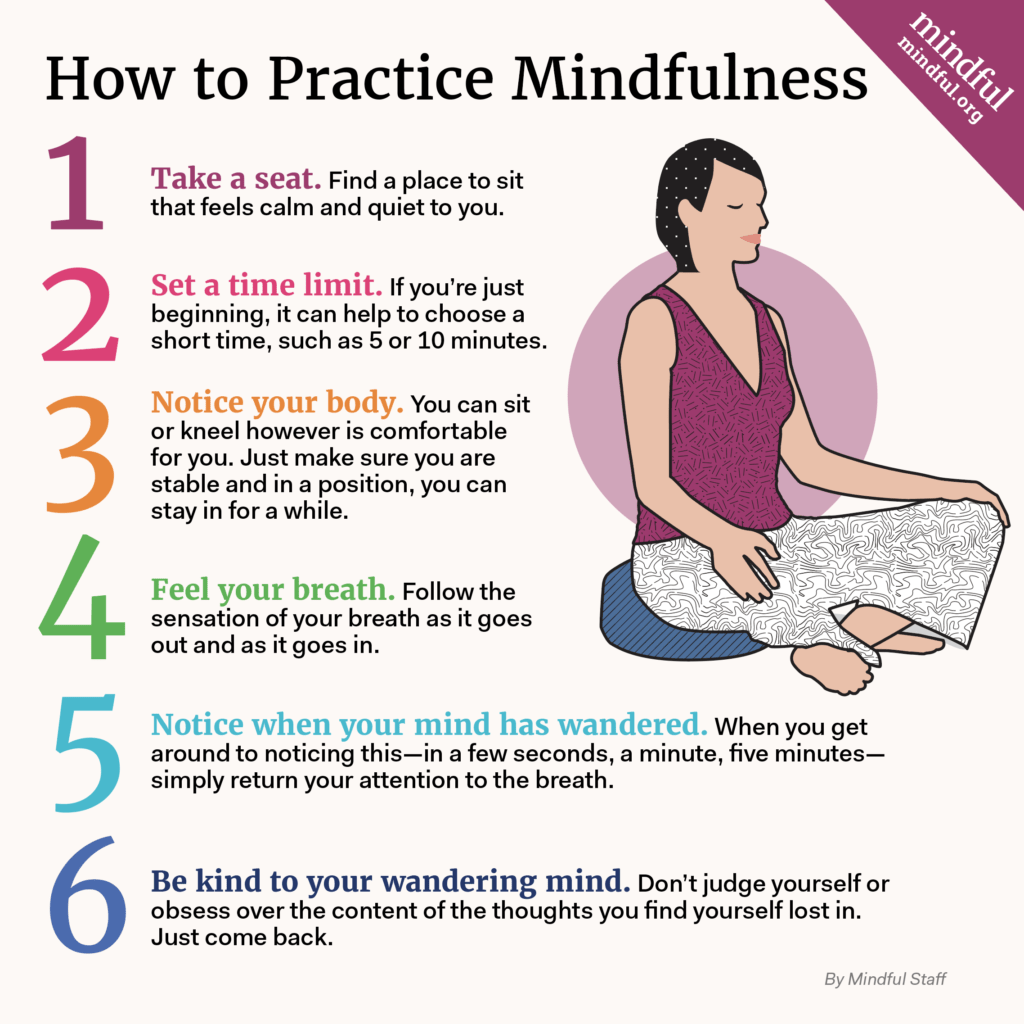The Ultimate Guide to Mindfulness: Benefits and Practices

Mindfulness is more than just a buzzword; it’s a transformative practice that can enhance your overall well-being. This ultimate guide to mindfulness will delve into its numerous benefits, practical techniques, and how to incorporate mindfulness into your daily life.

What is Mindfulness?
Mindfulness is the practice of being fully present and engaged in the moment without judgment. It encourages awareness of your thoughts, feelings, and surroundings. This simple yet profound practice can help reduce stress and improve mental clarity.
:max_bytes(150000):strip_icc()/mindfulness-meditation-88369-Final-ad7c6c81ec38454c97d383a2dffff0b8.png)
The Benefits of Mindfulness
Incorporating mindfulness into your life offers a plethora of benefits, including:
1. Stress Reduction
One of the most significant benefits of mindfulness is its ability to reduce stress. Studies show that practicing mindfulness can lower cortisol levels, the hormone primarily responsible for stress. Regular mindfulness practice can lead to a more relaxed state of mind, making it easier to navigate life’s challenges.
2. Improved Focus and Concentration
Mindfulness encourages mental clarity and helps improve focus. By training your mind to stay present, you can enhance your ability to concentrate on tasks at hand. This can be particularly beneficial in work or study environments, leading to increased productivity and creativity.
3. Enhanced Emotional Regulation
Practicing mindfulness can lead to better emotional regulation. It teaches you to observe your emotions without reacting impulsively, fostering a sense of calm. This skill can help you manage anxiety, anger, and other strong emotions more effectively.
4. Better Sleep Quality
Mindfulness practices, especially meditation, can improve sleep quality by calming the mind and reducing racing thoughts. Better sleep translates to improved overall health, boosting your immune system and enhancing cognitive function.
5. Increased Self-Awareness
Mindfulness promotes self-reflection, allowing you to gain a deeper understanding of your thoughts and behaviors. This self-awareness can lead to personal growth and healthier relationships. Understanding your triggers and reactions can empower you to make more conscious choices in your interactions with others.
6. Pain Management
Mindfulness has been shown to be effective in managing chronic pain. By changing your relationship to pain and observing it without judgment, you can reduce the perception of pain and increase your overall quality of life.

How to Practice Mindfulness
Integrating mindfulness into your life doesn’t have to be complicated. Here are some practical techniques to get you started:
1. Mindful Breathing
Start with simple breathing exercises. Focus on your breath—inhale deeply through your nose, hold for a moment, and exhale slowly through your mouth. Repeat this for a few minutes, allowing your thoughts to come and go without judgment. This practice can be done anywhere, making it easy to incorporate into your daily routine.
2. Body Scan
A body scan is a great way to practice mindfulness. Lie down comfortably and focus on each part of your body, starting from your toes and moving up to your head. Notice any tension and consciously relax those areas. This technique helps increase bodily awareness and promotes relaxation.
3. Mindful Eating
Transform your meals into a mindful experience. Slow down and savor each bite. Pay attention to the flavors, textures, and aromas of your food. This practice not only enhances your dining experience but also promotes healthier eating habits, as you become more in tune with your hunger and satiety cues.
4. Walking Meditation
Combine movement with mindfulness by practicing walking meditation. Focus on the sensation of your feet touching the ground, the rhythm of your breath, and the sights and sounds around you as you walk slowly and deliberately. This is an excellent way to practice mindfulness in motion.

5. Daily Mindfulness
Incorporate mindfulness into your daily routine. Whether you’re brushing your teeth, washing dishes, or commuting, practice being fully present in the moment. This helps to weave mindfulness into your everyday life seamlessly, allowing you to cultivate a more mindful mindset.
Overcoming Challenges in Mindfulness Practice
While mindfulness can be incredibly beneficial, it’s not without challenges. Here are some common hurdles and how to overcome them:
1. Wandering Mind
It’s natural for your mind to wander during mindfulness practice. When this happens, gently guide your focus back to your breath or the task at hand without self-judgment. This is a normal part of the process, and each return to focus strengthens your mindfulness skills.
2. Time Constraints
If you struggle to find time for mindfulness, start small. Even just five minutes a day can make a difference. Gradually increase your practice as it becomes more comfortable. Consider integrating mindfulness into activities you already do, like showering or waiting in line.
3. Skepticism
If you’re skeptical about mindfulness, approach it with an open mind. Try various techniques and find what resonates with you. Remember that mindfulness is a skill that takes practice to develop; allow yourself the grace to learn and grow.
Mindfulness Resources
To deepen your understanding and practice of mindfulness, consider exploring these resources:
- Books: Look for titles like “The Miracle of Mindfulness” by Thich Nhat Hanh or “Wherever You Go, There You Are” by Jon Kabat-Zinn.
- Apps: Apps such as Headspace or Calm offer guided meditations and mindfulness exercises to help you get started.
- Workshops: Many local communities offer mindfulness workshops or classes, providing hands-on learning experiences.
Conclusion
Incorporating mindfulness into your daily routine can have profound effects on your overall well-being. From reducing stress and improving focus to fostering better emotional regulation, the benefits are vast. By using simple practices like mindful breathing, body scans, and mindful eating, you can create a more present and fulfilling life. Start your mindfulness journey today and experience the transformative power of being in the moment.
